President Volodymyr Zelensky’s loyalist, Yulia Svyrydenko, was the last of four ministers appointed by parliament on Nov. 4.
Svyrydenko, the ex-deputy head of the President’s Office, became the 51st minister appointed since Zelensky took full control of parliament, following his Servant of the People party’s landslide victory in the 2019 parliamentary election.
Customs Head Pavlo Ryabkin was appointed minister of strategic industries, Zelensky’s party lawmaker Iryna Vereshchuk became the minister for the reintegration of occupied territories and ex-Vice Prime Minister Oleksii Reznikov will now serve as the minister of defense.
This was just the latest of many government reshuffles by Zelensky.
Few ministers survived more than a year on the job, with record-holders ex-Finance Minister Ihor Umansky and ex-Health Minister Illia Yemets fired less than a month into their terms.
While fighting a defensive war against Russia and combating the ongoing COVID-19 pandemic, Ukraine had three ministers of defense and four healthcare chiefs in just two years.
The process of hiring and firing top officials under Zelensky has been chaotic, experts say.
The disarray delayed crucial reforms in key government sectors, such as defense and medical procurement. Moreover, some ministers have left a dubious trail, with the National Anti-Corruption Bureau opening probes into corruption and abuse of office.
“They don’t have a strategy, no one knows why people are hired or fired, what are the KPIs (Key Performance Indicators), what were the initial goals of their appointments,” said Anatoly Oktysiuk, a political expert at the local think tank Democracy House.
“A huge staff turnover, as a result, the skilled don’t want to join the government — the reputational damage (to join) is huge,” Oktysiuk told the Kyiv Post.
Yet, this constant shuffling may continue for as long as the president and his 242-member Servant of the People faction sees political dividend in firing government officials. The President’s Office continues to think that new people will do a better job, Oktysiuk says. “They won’t.”
The reshuffle
The recent changes in government have been discussed since late summer.
According to Ukrainian media, the replacements weren’t done sooner because of the lack of candidates.
The five ministers that were eventually ousted on Nov. 3 are Strategic Industries head Oleh Uruskiy, Defense Minister Andriy Taran, Ecology Minister Roman Abramovsky and Economy Minister Oleksiy Lyubchenko.
Reznikov, head of the Ministry of Reintegration, resigned to take on a new Cabinet role.
According to lawmaker Mykyta Poturaev, who represents Zelensky’s party, the main reasons for the ousting were either inefficiency, corruption or both.
“Taran — ineffective, Uruskiy — ineffective, Lyubchenko — corruption, Abramovsky — the inability to combat corruption,” Poturaev told the Kyiv Post.
Several media outlets reported that on Nov. 3, the National Anti-Corruption Bureau and the Security Service of Ukraine searched the house of Lyubchenko as part of a corruption probe. The searches were also conducted in the State Tax Service.
Lyubchenko’s press secretary Anastasia Polityko told the Kyiv Post that the information about the searches in his house is untrue.
The process of selecting people for the constant new openings remains hidden from public eye.
Despite Zelensky only having the right to nominate ministers of defense and foreign affairs, the president has been accused of being involved in most appointments.
Moreover, several appointees didn’t bother to present their program in front of parliament, sitting quietly through their confirmation hearings, like Taran. The lack of merit-based appointments and the constant changes in ministries stall key reforms.
Making U-turns
The defense sector was probably the biggest victim of Zelensky’s selection policy.
After a promising start, the lack of a strategic vision and alleged nepotism have repeatedly thrown the nation’s wartime effort downhill.
Zelensky’s first Defense Minister Andriy Zagorodnyuk appointed in late August 2019, seemed a perfect fit. Zagorodnyuk wasn’t connected to the post-Soviet military establishment while assisting the army and advocating for reform.
But just six months in, Zagorodnyuk was abruptly sacked, without an explanation. Ukrainian media have alleged that Zelensky was dissatisfied with the minister’s performance.
Zelensky at some point decided to make a U-turn and kill the civilian defense minister experiment — even though civilian authority over the military has always been a crucial part of Ukraine’s pledges to comply with NATO standards.
“There was (eventually) another opinion — that the military must be in charge during wartime,” Zagorodnyuk told the Kyiv Post in May. “This concept is very different from that of NATO… but that was (Zelensky’s) call.”
The president opted to appoint Taran, a retired military general, rolling the situation back to where it was before Zelensky’s rule. Taran didn’t present his vision to parliament either and was known for declining to speak to the press.
He left quietly, in the same manner that he was appointed, with no real results.
On numerous occasions, Verkhovna Rada lawmakers and military watchdogs accused the minister of failing to complete the annual defense procurement plan on time, which he fiercely denied.
Taran’s ministry was also investigated for corruption.
On Oct. 29, Ukraine’s State Investigations Bureau charged Taran’s former deputy, Ihor Khalimon, with embezzlement that allegedly cost the state Hr 700 million ($26.6 million), due to shady meal procurement deals.
After multiple calls in parliament to sack Taran, the minister eventually resigned on Nov. 2.
According to Danylo Hetmantsev, a lawmaker with Zelensky’s party, the parliament had expected “better managerial skills” from Taran.
“It’s all about organizing the process,” Hetmantsev said on Nov. 2. “Which was not done with due diligence.”
Random people
In a similar fashion, Minister for Strategic Industries Uruskiy also quit on Nov. 2 without saying a word in front of parliament.
The very inception of his ministry in July 2020 under Zelensky was severely criticized as something unnecessary that would breed bureaucracy.
Uruskiy himself was repeatedly accused by watchdogs of highly-centralized control of state-run defense production, as well as extremely slow policymaking that effectively hog-tied the sector’s reform.
Every time a new batch of ministers is appointed by parliament, the public is left confused by why these new officials had been selected to join the government.
David Arakhamia, head of the Servant of the People faction, has been vocal about the ongoing Cabinet reshuffles, saying that it’s hard to find candidates for the vacancies. “Most of the good people we want refuse to enter the government,” Arakhamia said back in September.
He also added that as soon as the name of the next minister to be sacked is announced by the media, the ministry under him stops following orders.
As a result, people with questionable reputations end up occupying the top government jobs.
In March 2020, the parliament supported the appointment of Yemets as health minister. That was Yemets’ second stint as health minister, first serving under ousted pro-Kremlin President Viktor Yanukovych.
Inna Ivanenko, managing director of Patients of Ukraine, a non-governmental health organization, said that Ukraine lost valuable time, as the ministry under Yemets blocked procurement of essential medical supplies for weeks.
He was also accused of trying to get his own insider into the government’s dedicated procurement company. Yemets was soon ousted.
Maksym Stepanov, who was appointed instead of Yemets, was also alleged of stalling medical procurement and was fired in May 2021.
Umansky, who served for less than a month as finance minister, was fired after he was accused of opposing the cooperation with the International Monetary Fund, Ukraine’s crucial financial backer. Acting Energy Minister Olha Buslavets was fired after being accused of lobbying the interests of oligarch Rinat Akhmetov. Both she and Akhmetov’s representatives deny it.
Glimmer of hope
Zelensky went back to selecting a civil official to lead Ukraine’s defense. Both Poturaev and Oktysiuk praised Reznikov’s appointment.
In his confirmation speech, the new defense minister vowed to finally reach a “synergy” between the ministry and the military command. He also promised to turn the Armed Forces into “the country’s best employer.”
As his first move in office, the official vowed to revise the military documentation procedures. Unprecedented bureaucracy in this domain gave birth to bitter jokes about “the Ukrainian Paper Army” or UPA, for short.
To Hlib Kanievskyi, the head of Kyiv-based anti-graft watchdog StateWatch, the new nomination is a reason for very cautious optimism.
“We have reasons for concern,” Kanievskyi told the Kyiv Post. “But we also need to wait and see what comes next.”
You can also highlight the text and press Ctrl + Enter


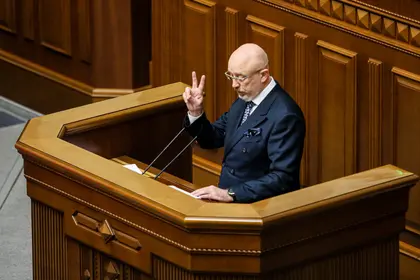
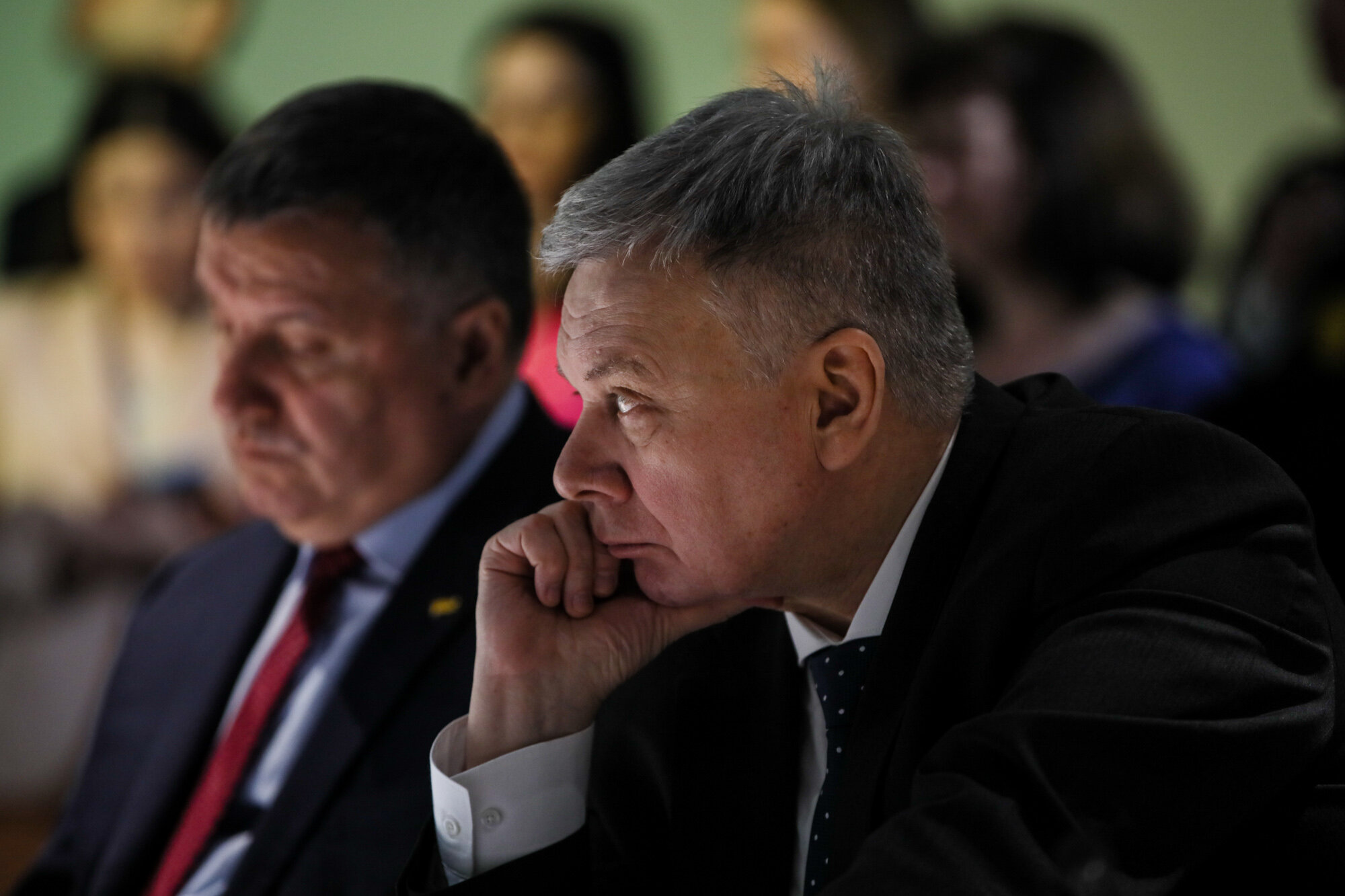

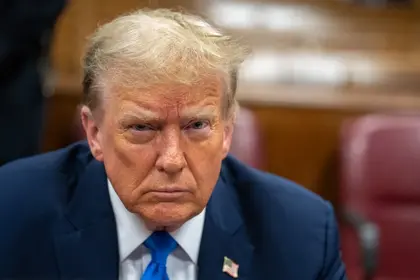
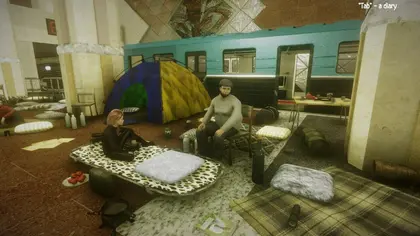
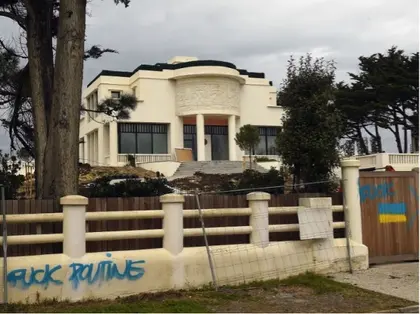
Comments (0)